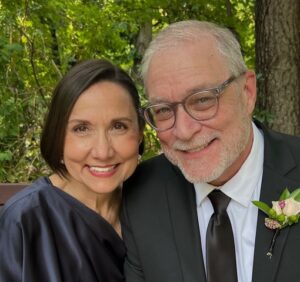Causing Transformation
We are catalysts who cause people to pursue and fulfill their purpose. Yes, that’s right, to cause people to fulfill their purpose! To cause is to make something happen.
As spiritual and transformational leaders we would make ourselves crazy if we took responsibility for fulfilling the dreams of others. No one needs that kind of pressure; yet, we not only can cause people to fulfill their purpose, it is our purpose as leaders.
I take my inspiration from Joshua, Moses’ successor, who inherited the task of leading a million people lost in the desert into a homeland God promised to their ancestors (Joshua chapter 1, verse 6). God’s word to Joshua was to “cause this people to inherit the land I swore to their fathers to give them.” To cause. I never thought of it before, but the directing word used was not “help”, or “lead” , or “inspire”, though I’m sure all of those things are implied, but it was to cause them to obtain their promise.
How can we be transformational leaders who cause others, and particularly the people we love, to lay hold of their promise and purpose? Some things we must do:
- See Yourself as a Catalyst
- Lend Your Resources and Influence as a Safety Net
- Leverage Your Experience as a Launching Pad
- Call out Gifts and Strengths
See Yourself as a Catalyst
We have to understand our role and calling as catalysts (change agents). The more we grow and mature in our own purpose, the more we come to realize we are not simply building out a grand plan to single-handedly change the world, but we are investing in the people we love and lead to help them reach for things they are not sure they can accomplish.
To “cause transformation” implies those we lead may not otherwise step into their dream. To cause, in this sense, is being a catalyst for transformation, an impetus for change, a facilitator to help people climb to their intended heights. We don’t take an arrogant or self-important posture because the dream does not come from us, the ability does not come from us, someone else’s promise is something given to them and it can find fulfillment independent of us. On the other hand, as a leader strategically placed in someone’s life through relationship we can encourage, facilitate, mentor, coach, lift, and inspire people to step into and seize their promise.
Lend Your Resources and Influence as a Safety Net
One feature common to all sane high wire acts is a net. Yes, the thrill of danger might be greater without a net, but the mere existence of the net gives rookie performers the confidence they need to put on a spectacular show. The day might come when these performers become more seasoned and they will attempt movements without a net, but while learning a net is a good thing. Similarly, in every endeavor, a safety net emboldens us to take greater risks.
Lending our resources to underwrite bold actions is a gift. Lending our influence can move others paces ahead quickly. Such leadership gestures give “wings” to people and prompts them to action.
Leverage Your Experience as a Launching Pad
As transformational leaders we lead with the heart of a father or a mother desiring good things for those we lead. With my children I always wanted to act as a ladder for them to climb and reach things I could never reach. The heart of transformational leadership is leveraging our experience to help those coming behind us reach higher.
Call Out Gifts and Strengths
Those we lead already have gifts and strengths. We do not approach leadership from the standpoint that followers will fail without us, no, we approach leadership from the posture of helping them do what they were probably going to grow into anyway, only we will help them do it sooner, better, and with the advantage our encouragement and support.
“Catalyst” is a scientific term for a substance that increases the rate of a chemical reaction. Contact with a catalysts speeds up a process. In the story of Joshua, Joshua’s strength and courage in leadership and spirituality inspired an army to do what they could have done physically without him, but not emotionally or spiritually. The ability was within the people, but they needed Joshua to show them the way.
Our purpose, as spiritual leaders, is helping others discover and understand their calling and purpose, to help them believe in their gifts, and to relate our own experiences to give them a fast track for learning and growth. My purpose is helping the people I love and lead lay hold on their design.
We tend to downplay our role in the lives of people obviously gifted. Of course God is the one who gave them the gift in the first place, of course a person is not going to change unless they decide, but our role is important in transforming the lives of the people we love and lead.
Take a moment to think of one way you can intentionally encourage someone today? Take a moment and share some other ways you encourage the people you lead.


